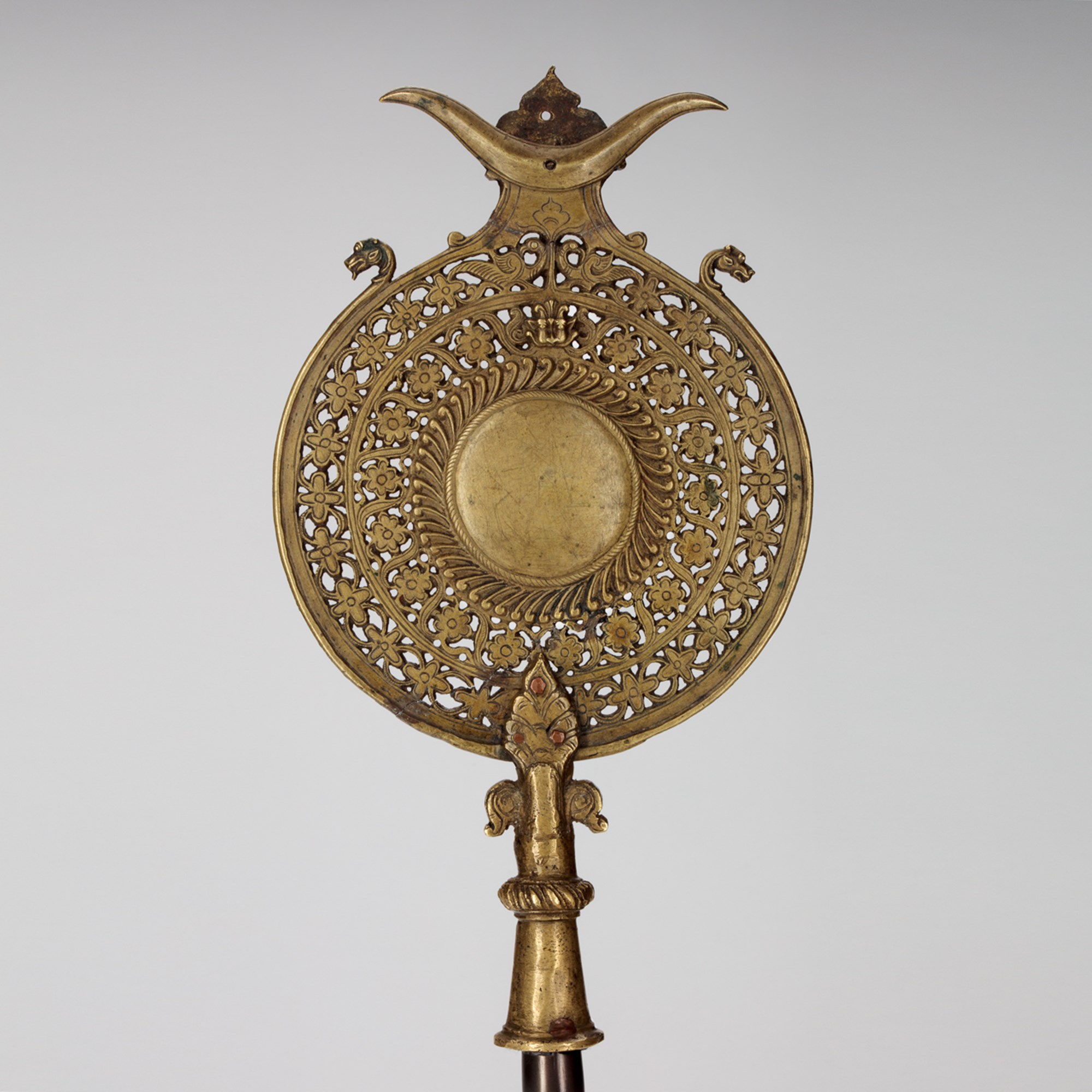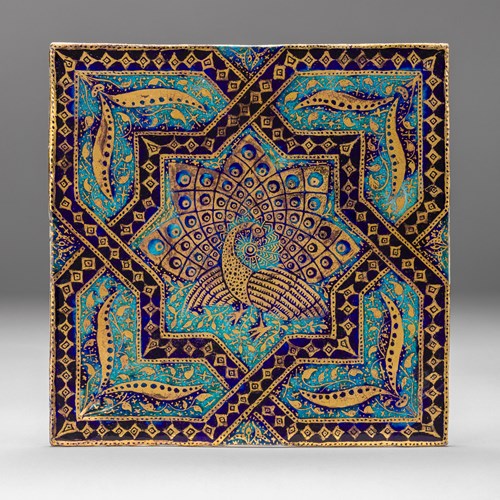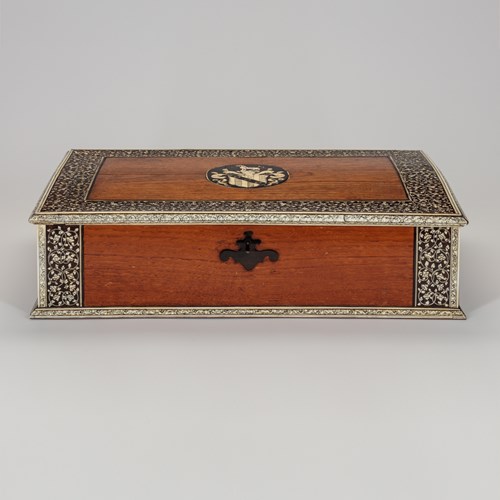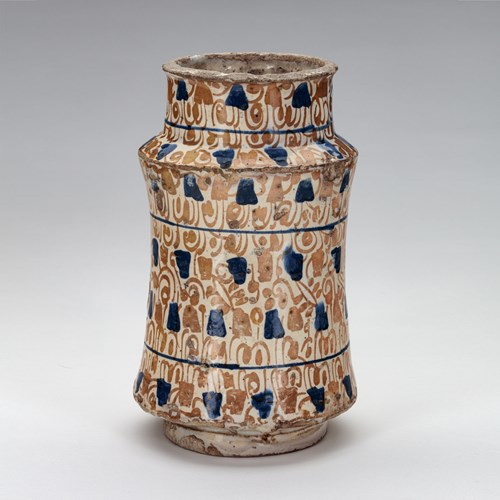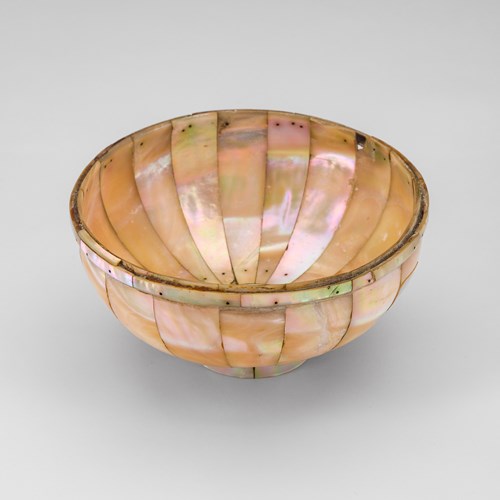Marketplace
Cast Bronze Alam
Cast Bronze Alam
Date 18th-19th century
Epoque 1750-1850, 18th century, 19th century
Origine South India
Medium Bronze
Dimension 29.5 cm (11⁵/₈ inches)
This round cast bronze alam (“standard” or “banner”) would have been carried in processions during battles or in state ceremonies. Dominated by elegantly pierced floral decorations, it consists of features typically found in Islamic alams, such as its tear-drop shape and the two dragon heads surmounting the rim.[1] However, the unusual absence of Quranic inscriptions suggests that this may have been used in a secular setting or perhaps by non-Muslims; indeed, the sun disk in the centre of the medallion is reminiscent of motifs found in Hindu art.
Traditionally, alams were used on the tenth day of the Islamic month of Muharram to mourn the death of the Prophet Muhammad’s grandson, Husayn ibn Ali, for it symbolised the battle standards carried by Husayn and his followers during the Battle of Karbala. Hence, alams were installed in ashurkhanas (meeting houses used for the recitation of dirges and prayers), where they were raised on poles that were adorned with rich cloths. Interestingly, Hindus of Golconda also historically observed Muharram,[2] therefore, this particular object may have been crafted and used within and for this religious community.
There is a similar alam without its crest of splayed finials in The Metropolitan Museum of Art in New York (see Museum Number: 2012.207.2a, b) as well as an alam with two dragon heads (see Museum Number: 2013.37). The Virginia Museum of Fine Arts also has an alam with two dragon heads (see Museum Number: 81.87).
References
[1] See, Mark Zebrowski. 1997. Gold, Silver & Bronze from Mughal India. Alexandria Press. p.321.
[2] Navina Najat Haidar and Marika Sardar. 2015. Sultans of Deccan India, 1500-1700: Opulence and Fantasy. New York: The Metropolitan Museum of Art. p.215.
Stock no.: A5044
Traditionally, alams were used on the tenth day of the Islamic month of Muharram to mourn the death of the Prophet Muhammad’s grandson, Husayn ibn Ali, for it symbolised the battle standards carried by Husayn and his followers during the Battle of Karbala. Hence, alams were installed in ashurkhanas (meeting houses used for the recitation of dirges and prayers), where they were raised on poles that were adorned with rich cloths. Interestingly, Hindus of Golconda also historically observed Muharram,[2] therefore, this particular object may have been crafted and used within and for this religious community.
There is a similar alam without its crest of splayed finials in The Metropolitan Museum of Art in New York (see Museum Number: 2012.207.2a, b) as well as an alam with two dragon heads (see Museum Number: 2013.37). The Virginia Museum of Fine Arts also has an alam with two dragon heads (see Museum Number: 81.87).
References
[1] See, Mark Zebrowski. 1997. Gold, Silver & Bronze from Mughal India. Alexandria Press. p.321.
[2] Navina Najat Haidar and Marika Sardar. 2015. Sultans of Deccan India, 1500-1700: Opulence and Fantasy. New York: The Metropolitan Museum of Art. p.215.
Stock no.: A5044
Date: 18th-19th century
Epoque: 1750-1850, 18th century, 19th century
Origine: South India
Medium: Bronze
Dimension: 29.5 cm (11⁵/₈ inches)
Plus d'œuvres d'art de la Galerie


